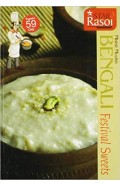- Home
- Books
- Categories
- Non Fiction
- Education and Reference
- Science
- Becoming Earth - How Our Planet Came to Life
Becoming Earth - How Our Planet Came to Life
By: Ferris Jabr
-
Rs 3,865.50
- Rs 4,295.00
- 10%
You save Rs 429.50.
Due to constant currency fluctuation, prices are subject to change with or without notice.
'Full of achingly beautiful passages, mind-bending conceptual twists, and wonderful characters.' – Ed Yong, author of An Immense World, winner of the Royal Society Science Book Prize
'The ambition, eloquence, and erudition in this dragonfly droneflight of a book are absolutely exhilarating.' – John Vaillant, author of Fire Weather, winner of the Baillie Gifford Prize
The notion of a living world is one of humanity’s oldest beliefs. Though once scorned by many scientists, the concept of Earth as a vast interconnected living system has gained acceptance in recent decades. Life not only adapts to its surroundings – it also shapes them in dramatic and enduring ways. Over billions of years, life transformed a lump of orbiting rock into our cosmic oasis, breathing oxygen into the atmosphere, concocting the modern oceans, and turning rock into fertile soil. Life is intertwined with Earth’s capacity to regulate its climate and maintain balance.
Through compelling narrative, evocative descriptions, and lucid explanations, Ferris Jabr shows us how Earth became the world we’ve known, how it is rapidly becoming a very different world, and how we will determine what kind of Earth our descendants inherit for millennia to come.
'Fascinating, thought-provoking, and, ultimately, inspiring.' – Elizabeth Kolbert, author of The Sixth Extinction, winner of the Pulitzer Prize for General Non-Fiction
'Full of achingly beautiful passages, mind-bending conceptual twists, and wonderful characters.' – Ed Yong, author of An Immense World, winner of the Royal Society Science Book Prize
'The ambition, eloquence, and erudition in this dragonfly droneflight of a book are absolutely exhilarating.' – John Vaillant, author of Fire Weather, winner of the Baillie Gifford Prize
The notion of a living world is one of humanity’s oldest beliefs. Though once scorned by many scientists, the concept of Earth as a vast interconnected living system has gained acceptance in recent decades. Life not only adapts to its surroundings – it also shapes them in dramatic and enduring ways. Over billions of years, life transformed a lump of orbiting rock into our cosmic oasis, breathing oxygen into the atmosphere, concocting the modern oceans, and turning rock into fertile soil. Life is intertwined with Earth’s capacity to regulate its climate and maintain balance.
Through compelling narrative, evocative descriptions, and lucid explanations, Ferris Jabr shows us how Earth became the world we’ve known, how it is rapidly becoming a very different world, and how we will determine what kind of Earth our descendants inherit for millennia to come.
'Fascinating, thought-provoking, and, ultimately, inspiring.' – Elizabeth Kolbert, author of The Sixth Extinction, winner of the Pulitzer Prize for General Non-Fiction
Becoming Earth - How Our Planet Came to Life
By: Ferris Jabr
Rs 3,865.50 Rs 4,295.00 Ex Tax :Rs 3,865.50
Zubin Mehta: A Musical Journey (An Authorized Biography)
By: VOID - Bakhtiar K. Dadabhoy
Rs 892.50 Rs 1,050.00 Ex Tax :Rs 892.50
The Origins of Political Order From Prehuman Times to the French RevolutioN
By: Francis Fukuyama
Rs 4,045.50 Rs 4,495.00 Ex Tax :Rs 4,045.50
Manning Up: How the Rise of Women Has Turned Men into Boys
By: Kay Hymowitz
Rs 895.50 Rs 995.00 Ex Tax :Rs 895.50
The Obama Syndrome: Surrender At Home War Abroad
By: Tariq Ali
Rs 1,100.75 Rs 1,295.00 Ex Tax :Rs 1,100.75
The Quest For Meaning: Developing A Philosophy Of Pluralism
By: Tariq Ramadan
Rs 1,185.75 Rs 1,395.00 Ex Tax :Rs 1,185.75
No similar books from this author available at the moment.
No recently viewed books available at the moment.
Zubin Mehta: A Musical Journey (An Authorized Biography)
By: VOID - Bakhtiar K. Dadabhoy
Rs 892.50 Rs 1,050.00 Ex Tax :Rs 892.50
Becoming Earth - How Our Planet Came to Life
By: Ferris Jabr
Rs 3,865.50 Rs 4,295.00 Ex Tax :Rs 3,865.50














-120x187.jpg?q6)





-120x187.jpg?q6)







